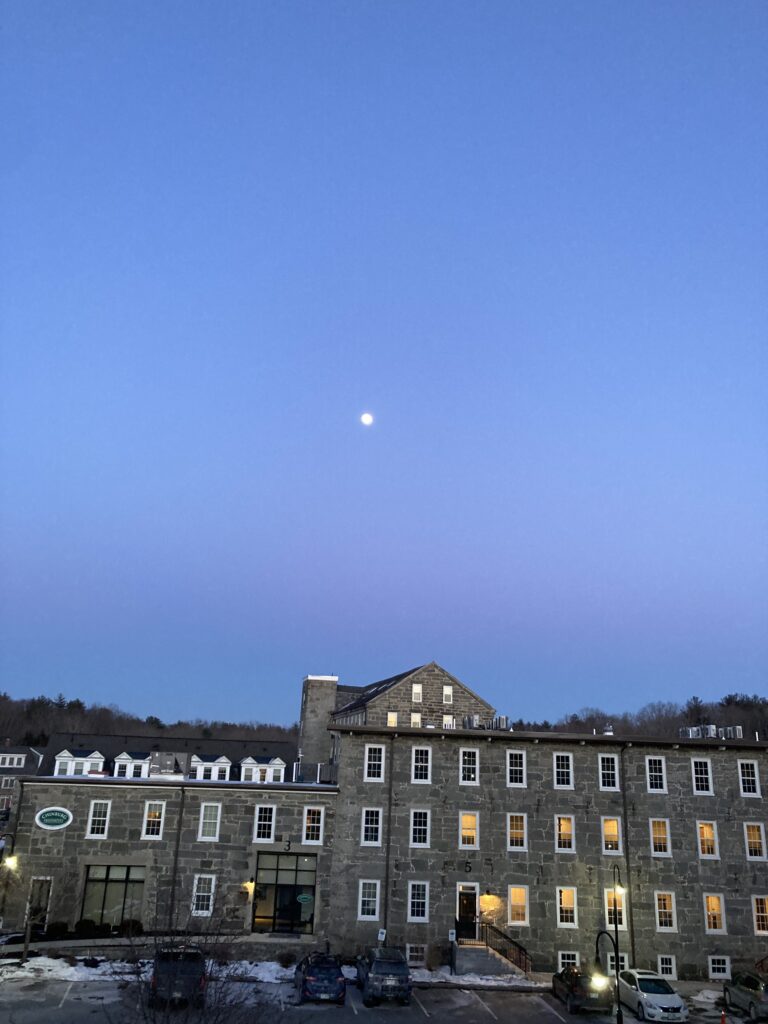The political scientist Benedict Anderson has argued that newspapers and novels created the “imagined community” that nationalism requires in order to flourish. What might be termed “imagined empathy” serves as the foundation of human rights rather than of nationalism. It is imagined, not in the sense of made up, but in the sense that empathy requires a leap of faith, of imagining that someone else is like you. Accounts of torture produced this imagined empathy through new views of pain. Novels generated it by inducing new sensations about the inner self. Each in their way reinforced the notion of a community based on autonomous, empathetic individuals who could relate beyond their immediate families, religious affiliations, or even nations to greater universal values.”
“Inventing Human Rights: A History” by Lynn Hunt, Norton, 2007.
Author: John
Moon over Mill Buildings
“Do not depend on the hope of results.”
A few days ago, Frank Ostaseski posted this quote on Facebook, and I thought I’d share it here.
Do not depend on the hope of results… You may have to face the fact that your work will be apparently worthless and even achieve no result at all, if not perhaps results opposite to what you expect. As you get used to this idea, you start more and more to concentrate not on the results, but on the value, the rightness, the truth of the work itself… You gradually struggle less and less for an idea and more and more for specific people… In the end, it is the reality of personal relationships that saves everything.
Thomas Merton (1915 – 1968)
Welcoming Winter
Remembering Fall
Crabapples
From Flower Farm to Church
Welcome
This website is a bit of a catch-all for me. It’s a commonplace book where I jot down quotations I like. It’s a place for posting photos. And it’s a digital file draw for writing of various sorts, some of it humorous.
If you’d like to learn a little about me, read my About page.
For a links to publications, read my Writing page.
And to give you a sense of my interests and whimsy, here’s a consideration of Denise Levertov’s poems about St. Thomas the Doubter, and here’s an improvisation I wrote blaming the last recession squarely on poets. (I like poets and poetry. Some of my best friends are poets, and I read and write about poetry a lot. This is simply a humorous sketch.)
Oh, and here’s a collection of recipes from Julia Child’s cookbook from her days in the OSS.
Comments? Drop me a line.
Looking Back
Mise en place
It occurred to me the other day that doing research for fiction is like setting out a mise en place. You’re laying out ingredients so that you can use them at a moment’s notice, without fuss. There’s no rooting around, no hunting. Everything you need is right where you need it, ready for use, during the moment of creation.





